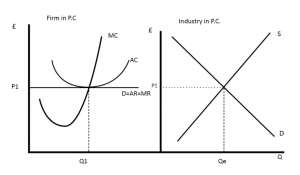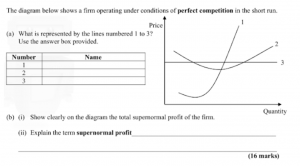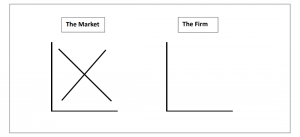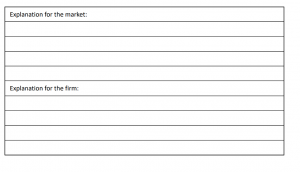Perfect competition – Assumptions
- There are many buyers in the industry: An individual buyer, by his/her own actions, can’t influence the market price of the goods.
- There are many sellers in the industry: An individual seller can influence the quantity sold by the price it charges for its output
- The goods are homogenous: The goods which are supplied by the producers are exactly identical. Thus it is pointless for a firm to advertise
- Freedom of entry and exit: No barriers to entry exist within the industry. It is possible for firms to enter/leave the industry as they wish.
- Perfect knowledge of profits and prices: Within the industry each firm has very accurate knowledge of profits made by other firms. Consumers has very accurate knowledge of the prices being charged for different products.
- Price taker: Each individual firm must accept the price as it is set in the market. Because each firm supplies such a tiny fraction of the market, it cannot influence the market price. Demand is perfectly elastic and if price increases above the prevailing market price then quantity demanded would fall to zero.
Long-run equilibrium: The combination of price and quantity that gives the firm the highest profit in the long run.
Short Run – Perfect Competition
Exam Question
Firms in Perfect Competition do not engage in advertising. Why?
- Homogenous goods: Because there is no difference between the goods there is no point in advertising.
- Increased costs with very little additional revenue: Costs from advertising would rise greater than revenue so there is no point advertising.
- Benefits the entire industry: Advertising by a single firm would not just benefit this firm but the entire industry.
Test your knowledge of perfect competition





